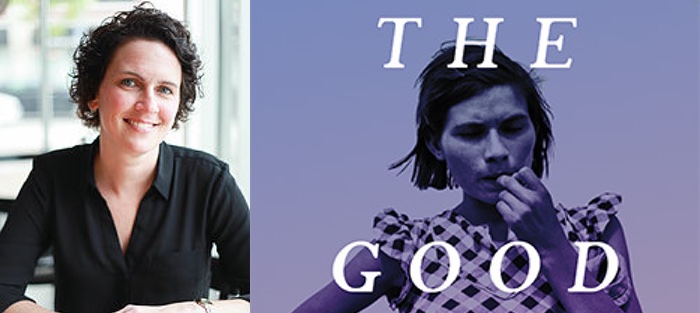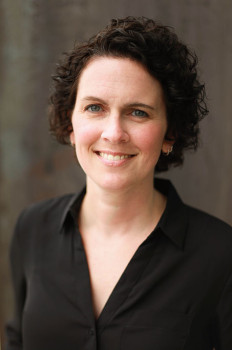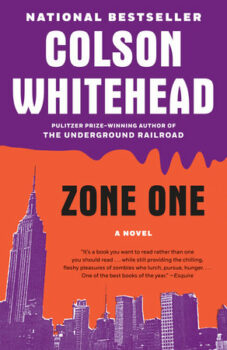What I first noticed about Kali VanBaale was her voice—a stern edginess beneath a welcoming Midwestern accent. We met in Burlington International Airport, both waiting for a passenger van to the Vermont College of Fine Arts. During the ride to Montpelier, I was too nervous to speak. I listened to Kali chat with our fellow MFA candidates. I chuckled softly and nodded in agreement with her dark witty observations. When we arrived at the campus and removed our luggage from the shuttle, I offered to carry Kali’s baggage up three floors to her room in the residence hall.
This led to one of the most important connections in my life. Kali’s voice has stayed with me since the day I reached for her suitcase, and it continues to motivate my own writing. Through my friendship with Kali VanBaale, I have learned a lot about labor, love, and persistence. And, I have benefitted from her insights on publishing and craft.
Kali’s prose bares her unique cadence, featuring compassionate narratives that challenge misconceptions about motherhood, matrimony, and the American Midwest. I enjoyed having the opportunity to chat again with Kali and discuss style and approach, library circulation trends, similarities between rappers and novelists, and the frequent dismissal of Midwestern literature.
In addition to her most recent novel, The Good Divide, released this month from MG Press, VanBaale is the author of The Space Between (River City Publishing, 2006), which earned an American Book Award, the Independent Publisher’s silver medal for general fiction, and the Fred Bonnie Memorial First Novel Award. Her third novel, The Cure for Hopeless Causes, was awarded a State of Iowa Arts Council major artist grant and is currently pending publication. Her short stories and essays have appeared in The Milo Review, Northwind Literary, The Writer and the anthologies Voices of Alzheimer’s and A Cup of Comfort for Adoptive Families.
Kali VanBaale holds an MFA in creative writing from Vermont College of Fine Arts and has been an assistant professor of writing and literature at Drake University and Upper Iowa University. She currently lives and writes outside Des Moines with her husband and three children.
Interview:
Donald Quist: I’ve known you for a few years, but I don’t think I’ve ever asked you how long you’ve been writing.
Kali VanBaale: I’ve been writing as a hobby since I was about thirteen. I started with poetry, if you can believe it…very, very, bad poetry. I progressed to short stories in undergrad. When I was twenty-five and pregnant with my first child, I decided to take the leap and get serious about writing. So I quit my job—with my husband’s blessing—and started a novel. It’s been roughly twenty years, fifteen of them that I would call full-time.
Poetry can be like a gateway drug for fiction authors.
I think all writers secretly start with poetry.
So, during your pregnancy you decided to get serious about your writing. Do you remember the moment when you first identified as a writer?
I do remember. After my son was born, I joined my first writers’ group at a local Barnes & Noble. I brought a few pages to read out loud from a novel I had started, and I was absolutely crucified. They hated it. I actually left the store in tears. But make no mistake, they were right. It was terrible. And you would think that would’ve totally discouraged me, but instead I got into my car and had this very, “F*** you, I’m coming back next week with something better because I’m a writer and I’m here to learn” reaction. It was the first time I clearly recall thinking, “I AM a writer and I’m not going anywhere.”
I had a similar defining moment. I attended a workshop in Spartanburg, South Carolina, headed by C. Michael Curtis, fiction editor for The Atlantic. He said the story I’d submitted was, “Static. Colorful static.” I vowed to do better.
Maybe that’s how we all come to see ourselves as writers: when someone dares to tell us we’re not.
In the dedication of your forthcoming novel, The Good Divide (Midwestern Gothic Press), you thank your parents “For giving me such a nice beginning to my own story.” I’m familiar with parts of your childhood after reading your gorgeous essay “Farm Crisis Kid” at Numéro Cinq, but could you tell me a little more about your family and where you were raised?
I’m a total 80’s Gen-X farm kid. I was born and raised on a dairy farm outside of a tiny town called Bloomfield in rural southern Iowa. Kind of a poor area, lots of Amish, far from anything considered important. My early childhood was a bit charmed. I had fields and creeks and timbers as my playground, and I was a very strange, imaginative child. It was the perfect environment to entertain myself. But in the early 80s, the farm crisis hit and brought seasons of floods and droughts and bankruptcies and worry. It was the first time I started to realize my family was a little poor. Not starving poor, but struggling no matter how hard they worked because so much of their livelihood was out of their control. For me, it was the beginning of a lifetime of anxiety and a distrust of many things—money, faith, prayer, even the weather. My family and farm came out of the crisis intact, but it had long lasting effects that took me decades to recognize. I’m forty-one and I still feel that poor, buck-toothed, frizzy-haired farm kid looking over my shoulder every time I type a word onto the screen.
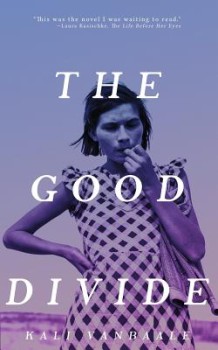 In the end, though, my parents did give me my greatest asset, which is the willingness to work hard for what I want. That’s what I believe in: hard work. I have them to thank for that.
In the end, though, my parents did give me my greatest asset, which is the willingness to work hard for what I want. That’s what I believe in: hard work. I have them to thank for that.
And you still reside in Iowa. Why did you decide to stay in the Midwest?
Yes, I do still live in Iowa, outside of Des Moines, which is about two hours away from the farm where I grew up. My parents retired and built a house down the road so that they’re closer to my kids and can help as they get older. I’ve considered moving to another state a few times—my husband once had a job prospect in Washington and turned it down—but I think it’s different for farm kids. Your survival and livelihood has literally been dependent on the land beneath your feet. You become very attached to it in a way that’s hard to articulate to non-farm kids. The soil, I think, is born in your blood. I went through a stage in my late 20s and early 30s where I felt very self-conscious about being from Iowa and still living here by choice. I would attend writing conferences or festivals or whatever and someone would inevitably ask, “Where do you live?” I would answer, “Iowa.” They would then follow up with, “Oh, did you attend the workshop?” As in, the famed Iowa Writers Workshop. And when I would answer no, that I live in Iowa by choice, their eyes would glaze over. It got to me for a time. I would stutter out explanations or tell stories about how much I’ve traveled around the world, sounding very defensive, no doubt. But then as I neared my 40s, I just stopped caring so much about what other people thought. I’ve lived in Iowa my whole life. So what? I still have something to say and living in Iowa hasn’t ever prevented me from saying it.
That reminds me: I came across a quote from rapper Wiz Khalifa that I wanted to share with you: “When you’re from the East Coast or you’re from the South, people expect you to sound a certain way. So if you don’t sound that way, people won’t label you as that type of artist. For me, I had a whole new lane to create for myself being a Midwest artist.”
I find this true in publishing too. It has been my experience that, despite having birthed some of the most celebrated novelists in history, the Midwest is often overlooked when people think of literature. The South, the East coast, and the West coast have more cohesive and clearly defined literary traditions and communities. Would you agree with that observation?
Yes. Wiz gets it. And yes, you’re exactly right about the Midwest being overlooked. I have a theory that the chronic dismissal of the Midwest and Midwestern writers is partly the fault of East and West coasters stereotyping everyone in the Midwest—we’re all nice, go to church, and grow corn—and partly the fault of Midwesterners themselves—we’re heavily defined by restraint and the unspoken. A lot is left unsaid behind the polite smiles of Midwesterners, and passive aggression runs amok. I think this is the true defining literary tradition of the Midwest: all the things we don’t say. And I have the therapy bills to prove it.
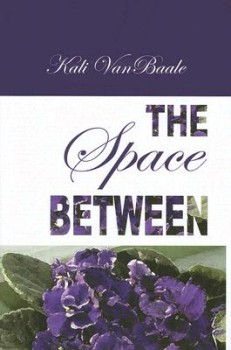 We’ll come back to this in a moment because it echoes themes in your work. First, let’s talk about how you made your own lane. Could you describe the process of how you got your first and second novel published and how these experiences differed?
We’ll come back to this in a moment because it echoes themes in your work. First, let’s talk about how you made your own lane. Could you describe the process of how you got your first and second novel published and how these experiences differed?
My first novel was published after I submitted to and won a contest called the Fred Bonnie Memorial First Novel Award with River City Publishing. The award came with a publishing contract, a small advance, and a hardback print run. It was the true start of my career, and I will always be indebted to River City for giving me a chance. River City Publishing, coincidentally, is primarily a southern publisher based in Montgomery, Alabama, but three of us who have won the Fred Bonnie Award live in or attended school in the Midwest.
Midwestern Gothic Press will publish my second novel this month—they’re based in Ann Arbor, Michigan. I first connected with them through the AWP Conference. They then later emailed me and asked if I had anything they could look at for their journal, which I didn’t, but I did say I had a novel that had been sitting idle for a while, so they asked to look at that. And here we are. They’ve been a perfect fit for this second book. An agent represents my third novel, and she’s furiously working to sell it as we speak. But no matter what lane I’m in for any given book, it’s hard. Publishing is just hard.
Your debut novel, The Space Between, was released in 2006. Your second novel, The Good Divide, appears now in June of 2016. That’s a long gap. Could you talk about what you were up to and how your writing has developed in that time?
Ah, the ten-year plan. Not actually part of my “plan.” I had a lot of life and living happen in those ten years that caused delays. My husband and I adopted a daughter from India, while my boys transitioned from elementary to middle to high school and driving. I started teaching creative writing at conferences, and later at Drake University and Upper Iowa University for two years. And I watched far too many hours of Netflix.
I also went back to graduate school and got my MFA in creative writing from Vermont College of Fine Arts. It’s hard to articulate how grad school changed my writing because three years later I’m still discovering changes. I think above all, my time at VCFA pushed me to find my voice. What is it I write? Who am I as a writer? What do I want to say? In some ways my grad school experience turned me completely sideways trying to answer those questions, but once the ship was righted, I felt like I finally knew what I wanted to say, put my pen to the page, and now say it with confidence.
Finally, I had the chance to meet some really, really cool people at Vermont. There this was this one guy, the very first day, who took pity on me and carried my massive suitcase up three flights of stairs. I wonder whatever happened to that loser?
Ahem, he’s become one of your best friends and greatest admirers . . .
Speaking of admiration, despite being one of the most proficient storytellers I know, you also happen to be one of the most doubtful. You’ve been compared to Richard Yates, one of your favorite authors, and received praise from writers like David Jauss and Laura Kasischke. However, you still worry whether your writing is good enough. I’m less concerned with the origins of this uncertainty; I think all serious artists struggle with the same feelings of inadequacy at some point in their career. My question is, why do you continue to write and what pushes you through seasons of doubt and drought?
Some days it feels like self-criticism and doubt will be my undoing. But here’s the weird reverse psychology part: I work best when I feel like I’m being underestimated or doubted. If everyone sings me praises, I’ll buy my own bulls*** and lose my will to fight. It’s a ridiculous way to work, I know, but it’s how I’m hardwired. I have to go at everything with closed fists. Praise makes me uncomfortable and I squirm and don’t know how to respond. Criticism lights a fire under me and I get back to work… Dave Jauss is one of the greatest human beings, by the way.
About the way you work, let’s discuss overarching themes in your narratives. In your first book, Judith Elliot’s world is shattered after her teenage son orchestrates a school shooting that ends four lives, including his own. In your short story, “Jar of Nails,” at The Milo Review, Jessie drops an infant at a baby shower. Your upcoming novel centers on Jean Krenshaw, a Wisconsin dairy farm wife secretly involved in the unusual death of a local woman. Your heroines wrestle with guilt, alienation, and isolation. Their stories oppose widely held perceptions of idyllic rural and suburban life in Middle America. I’m curious: when you approach a project how important is it for you to build on these themes? What are some other trends in your work, planned and discovered?
So many people in Middle America I’ve gotten to know are complex beings just like people anywhere else. They make mistakes big and small, hurt people they love and have tangled family trees. They have phobias and neuroses, moments in their past they’d rather forget, and current relationships they’re struggling to save. That’s what interests me. That’s what I want to write about: women who make mistakes and how—or if—they move on from them, and imperfect, even dysfunctional, families that are still, in the end, families. This idyllic rural and suburban life of Middle America—I’ve never been there. It sounds terribly boring.
Here’s something interesting I recently discovered while working on my current novel-in-progress: every book I’ve written has been my dark and twisty version of a love letter to something. My first book was my version of a love letter to motherhood. My second book is a love letter to my family’s farm. My third book is a love letter to the small town where I grew up. And this new work-in-progress is a love letter to my 80’s childhood. It took me four books to figure out this is what I’m doing.
When you’re not writing you have a job at local library, right?
Yes, I work part time as a substitute for the Des Moines Public Library and their six locations, and it has been truly eye-opening as to what books the majority of the public reads. Or, maybe, depressing. It’s made me think much more about the commercial viability of my writing and my books. I see the same books by the same authors checked out over and over. James Patterson can release a book and the library will order five copies for one location, and there’s a waiting list as long as my arm. But a small, gorgeously written book by an emerging author will get only a handful of checkouts and then sit on the shelf collecting dust. Someone like Lee Martin (whose writing I really admire) releases a new book and I had to request that the library order it. Really opened my eyes to how hard it is to get beautiful books into the hands of readers.
Who are other contemporary Midwestern novelists that inspire you?
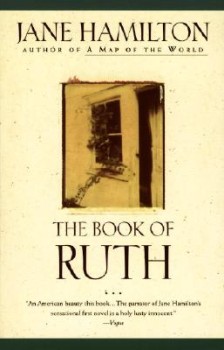 I’m a crazy, super fan of Jane Hamilton. Her debut novel The Book of Ruth is the book that made me want to be a writer. I met her at the library a few years ago and I totally embarrassed myself. She was so gracious—nary a restraining order. I love Hamilton’s writing, her rawness. The voices she creates for her characters—their longing. Yes, Lee Martin, love his books. And, of course, the grand master of Midwestern fiction Sherwood Anderson.
I’m a crazy, super fan of Jane Hamilton. Her debut novel The Book of Ruth is the book that made me want to be a writer. I met her at the library a few years ago and I totally embarrassed myself. She was so gracious—nary a restraining order. I love Hamilton’s writing, her rawness. The voices she creates for her characters—their longing. Yes, Lee Martin, love his books. And, of course, the grand master of Midwestern fiction Sherwood Anderson.
In his review of your new novel, Mathieu Cailler compares you to Sherwood Anderson. I’m sure praise like this makes you uncomfortable. And you don’t write for the riches and fortune. So, what do you want from your work and what do you hope for your writing to accomplish?
I could hardly read that review it made me so utterly overjoyed and painfully uncomfortable all at once. What I always hope to accomplish, first and foremost, is to engage the reader in some way—whether through escapism, entertainment, or an emotional connection. I just want the reader to feel like it was time well spent with this story and characters, whatever the reasons for the reader.

